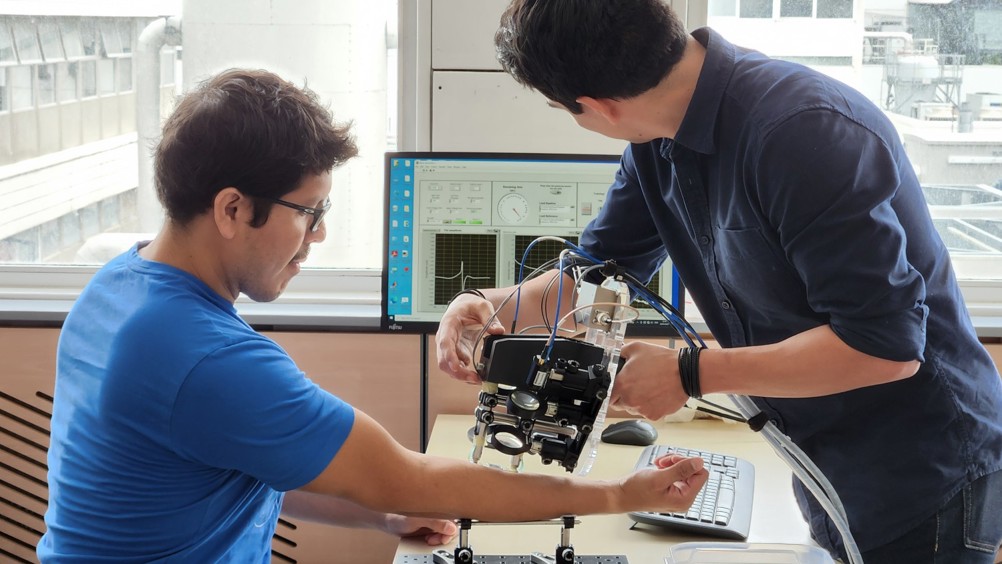Skinometer promises to speed up skin cancer treatment
A skin scanner developed at Warwick University will enable surgeons to establish the exact extent of skin cancer before surgery, an advance that promises to speed up treatment.

The so-called ‘skinometer, the first patient measurement device to harness light from the part of the spectrum where infrared and microwaves meet, has been developed with support from EPSRC.
According to Warwick, current practice can require taking and testing multiple skin samples during the procedure, but with the skinometer a three-hour surgical procedure could take half an hour to perform.
The skinometer has started undergoing preliminary testing on patients at University Hospitals Coventry and Warwickshire (UHCW) NHS Trust and a handheld version has been developed.
In a statement Professor Joe Hardwicke, a skin cancer surgeon at UHCW, said: “This new technology may give us the ability to diagnose cancers in living tissue in real time and avoid the need for biopsy in the future for certain cancer types. This will speed up diagnosis and could provide a tailor-made treatment for each patient.”
The skinometer produces tiny pulses of light from the terahertz part of the spectrum, which strike the skin’s surface and bounce off.
Register now to continue reading
Thanks for visiting The Engineer. You’ve now reached your monthly limit of news stories. Register for free to unlock unlimited access to all of our news coverage, as well as premium content including opinion, in-depth features and special reports.
Benefits of registering
-
In-depth insights and coverage of key emerging trends
-
Unrestricted access to special reports throughout the year
-
Daily technology news delivered straight to your inbox










Water Sector Talent Exodus Could Cripple The Sector
Maybe if things are essential for the running of a country and we want to pay a fair price we should be running these utilities on a not for profit...